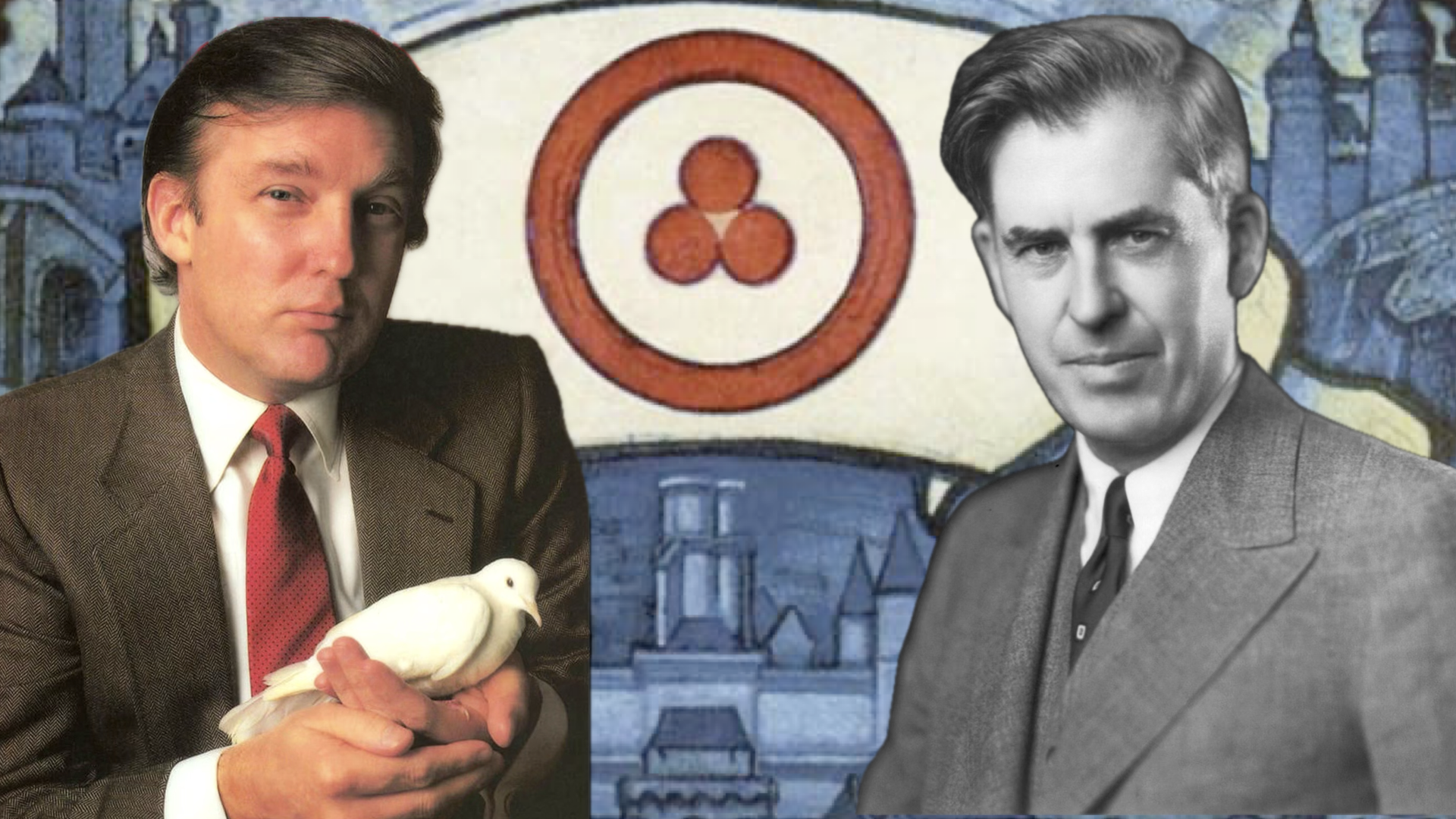As Donald Trump capitulates to Putin on Ukraine, many are wondering what leverage Putin has over him and revisiting longstanding evidence that Trump has been groomed for decades as a KGB asset. Trump was, however, not the first candidate selected for this mission.
That dubious honor goes to Henry A. Wallace, agriculture secretary under Franklin Roosevelt during his first and second terms (1933-1940), and Vice President during his third term (1941-1945). Wallace, a crop scientist by training, became increasingly interested in religious mysticism and began a lengthy correspondence with Nicholas Roerich, a Russian emigré artist based in New York City. Roerich was a student of theosophy, the esoteric belief system created by Helena Petrovna Blavatsky decades prior; Roerich and his wife Helena expanded on Blavatsky’s ideas to create Agni Yoga, which attracted devotees like Wallace.



The KGB was very much around in 1987 when Trump visited Moscow and began pushing Russian interests in America and generally criticizing US alliances.
The article speaks of the KGB as if it is still relevant to modern geopolitics. It genuinely does not matter if Trump had a homoerotic relationship with numurous KGB assets. Its been 34 years. Envoking its name feels more like a cheap way to get clicks from boomers haven’t realized the cold war ended. Trump has significantly more relevant connections to Russia than this.
even russians still talk about the KGB when refer to any kind of Russian intelligence agency.
“KGB” still evokes the idea of Soviet/Russian agents in three convenient letters. Honestly, at this point, I’d be depressed to see a poll of how many people in the U.S. know the USSR is no more. We referred to them as “Russians” in the '80s anyway. Details are unimportant to voters.